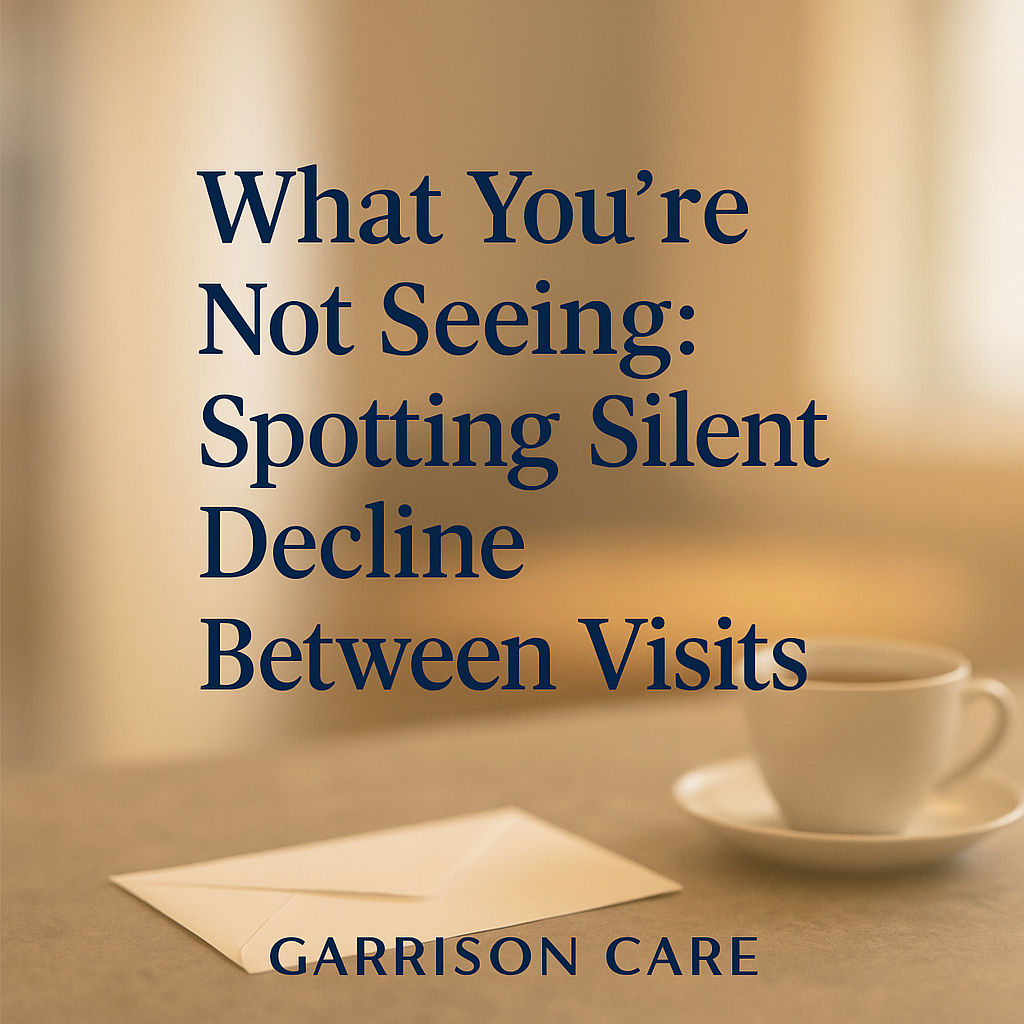What You’re Not Seeing: Spotting Silent Decline Between Visits
The Real Cost of Waiting
You can’t protect what you can’t see, and for many families, that’s the hardest truth of caregiving from a distance. Decline rarely announces itself. It moves slowly, quietly, through everyday spaces: an unopened bill sitting on the counter, laundry left unfolded, a meal skipped without explanation. Each of these details can seem harmless in isolation, but together they form a quiet language, one that tells us when someone we love may be losing a bit of their rhythm, or their confidence, or their strength.
Many adult children rely on phone calls and brief weekend visits to gauge how a parent or relative is doing. A warm voice on the other end of the line can offer reassurance, but it doesn’t always tell the full story. Care professionals call this pattern the silent decline — the slow, steady loss of independence that happens between check-ins. It’s not neglect or denial; it’s the simple truth that life’s smallest shifts are easy to miss when you’re not there to see them. By the time those subtle signs become unmistakable, the family is often responding to a crisis instead of preventing one.
What makes the difference is awareness and structure. Families who learn to observe with intention can act before safety, health, or dignity are at risk. Start by watching for small, repeatable patterns: unopened mail, unfinished meals, repeated clothing choices, or a hesitation while moving across a room. Notice whether mood and memory are changing — shorter conversations, forgotten appointments, irritation that wasn’t there before. Look around the environment, too. Clutter building up where there used to be order, dim lighting, or signs of neglect often point to fatigue or early confusion. Two or more of these cues don’t always signal a crisis, but they do signal time for conversation, one rooted in empathy, not authority. Asking “What’s been harder lately?” opens far more trust than “What’s wrong?”
Decline is not failure. It’s feedback. The body and mind asking for a different kind of support. Families who learn to read that feedback early create a care environment grounded in collaboration rather than correction. They step in before exhaustion sets in, before fear takes over, before independence becomes unsafe. This approach doesn’t just protect a loved one; it preserves connection. It transforms caregiving from something reactive into something deeply proactive and compassionate.
The best care doesn’t begin in crisis. It begins in noticing. Because when we choose to see what’s quietly changing, we give ourselves the gift of time. Time to plan, to prepare, and to preserve the quality of life our loved ones deserve.
Final Thoughts
Decline doesn’t happen overnight, and neither does awareness. It’s built through attention, conversation, and courage one small observation at a time.
Thought-Provoking Question:
What quiet change have you noticed lately that might be saying more than it seems?
Next Week’s Preview
“I Don’t Need Help!” — How to Support Without Pushing Too Hard..
Follow @GarrisonCare for weekly insights from The Care Standard — because awareness is care in action, and action protects what matters most.
By commenting, you agree to our Comment Moderation Policy.

